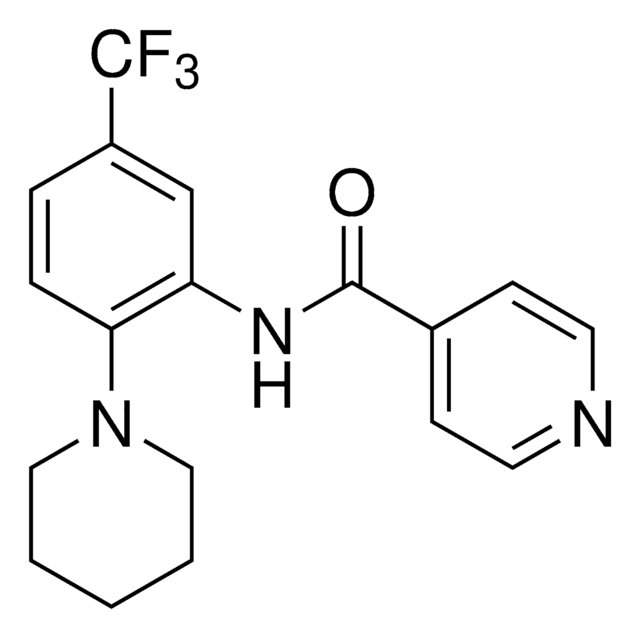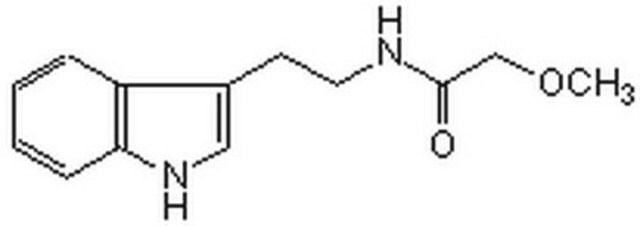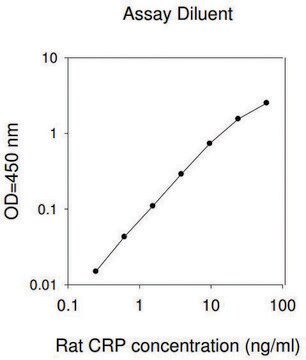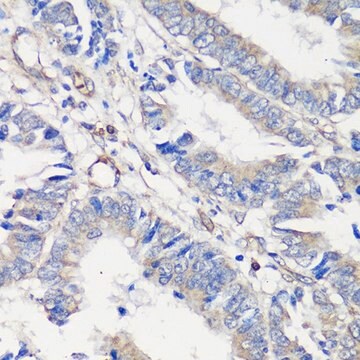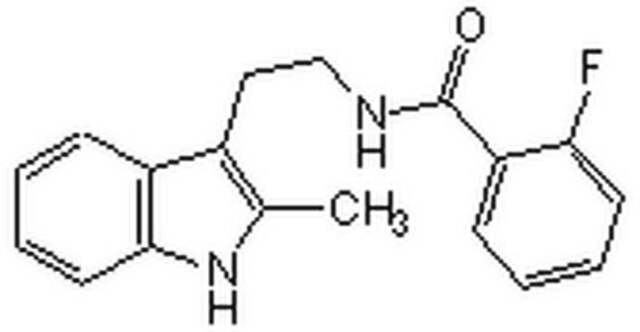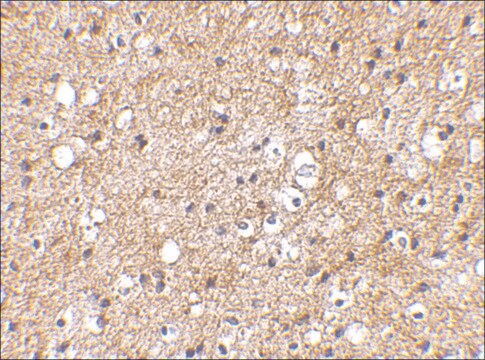PZ0115
CP-31398 dihydrochloride hydrate
≥98% (HPLC)
Synonym(s):
N′-[2-[2-(4-Methoxyphenyl)ethenyl]-4-quinazolinyl]-N,N-dimethyl-1,3-propanediamine dihydrochloride hydrate
About This Item
Recommended Products
Assay
≥98% (HPLC)
storage condition
desiccated
color
yellow
solubility
H2O: ≥20 mg/mL
storage temp.
2-8°C
SMILES string
O.Cl.Cl.COc1ccc(cc1)\C=C\c2nc(NCCCN(C)C)c3ccccc3n2
InChI
1S/C22H26N4O.2ClH.H2O/c1-26(2)16-6-15-23-22-19-7-4-5-8-20(19)24-21(25-22)14-11-17-9-12-18(27-3)13-10-17;;;/h4-5,7-14H,6,15-16H2,1-3H3,(H,23,24,25);2*1H;1H2/b14-11+;;;
InChI key
JXIVIAMOMIONKY-UWCBQFGESA-N
Gene Information
human ... TP53(7157)
mouse ... TP53(22059)
rat ... TP53(24842)
Application
- to evaluate its effects on the upregulation of miRNA in human neuroblastoma cells
- to study its effects on arsenic trioxide (ATO) stabilization of p53 folding
- to study its effects on regulation of miR-34 in PC12 cells
Biochem/physiol Actions
Features and Benefits
Signal Word
Warning
Hazard Statements
Precautionary Statements
Hazard Classifications
Acute Tox. 4 Oral - Aquatic Chronic 4 - Eye Irrit. 2 - Skin Irrit. 2
Storage Class Code
11 - Combustible Solids
WGK
WGK 3
Flash Point(F)
Not applicable
Flash Point(C)
Not applicable
Certificates of Analysis (COA)
Search for Certificates of Analysis (COA) by entering the products Lot/Batch Number. Lot and Batch Numbers can be found on a product’s label following the words ‘Lot’ or ‘Batch’.
Already Own This Product?
Find documentation for the products that you have recently purchased in the Document Library.
Articles
We present an article about how proliferating cells require the biosynthesis of structural components for biomass production and for genomic replication.
Related Content
n proliferating cells, the cell cycle consists of four phases. Gap 1 (G1) is the interval between mitosis and DNA replication that is characterized by cell growth. Replication of DNA occurs during the synthesis (S) phase, which is followed by a second gap phase (G2) during which growth and preparation for cell division occurs. Together, these three stages comprise the interphase phase of the cell cycle. Interphase is followed by the mitotic (M) phase.
Apoptosis, or programmed cell death (PCD), is a selective process for the removal of unnecessary, infected or transformed cells in various biological systems. As it plays a role in the homeostasis of multicellular organisms, apoptosis is tightly regulated through two principal pathways by a number of regulatory and effector molecules.
Our team of scientists has experience in all areas of research including Life Science, Material Science, Chemical Synthesis, Chromatography, Analytical and many others.
Contact Technical Service![[Pyr1]-Apelin-13 trifluoroacetate salt ≥96% (HPLC)](/deepweb/assets/sigmaaldrich/product/images/391/809/a864cd5a-3260-42cf-93ae-cb4754f4e4ad/640/a864cd5a-3260-42cf-93ae-cb4754f4e4ad.jpg)

